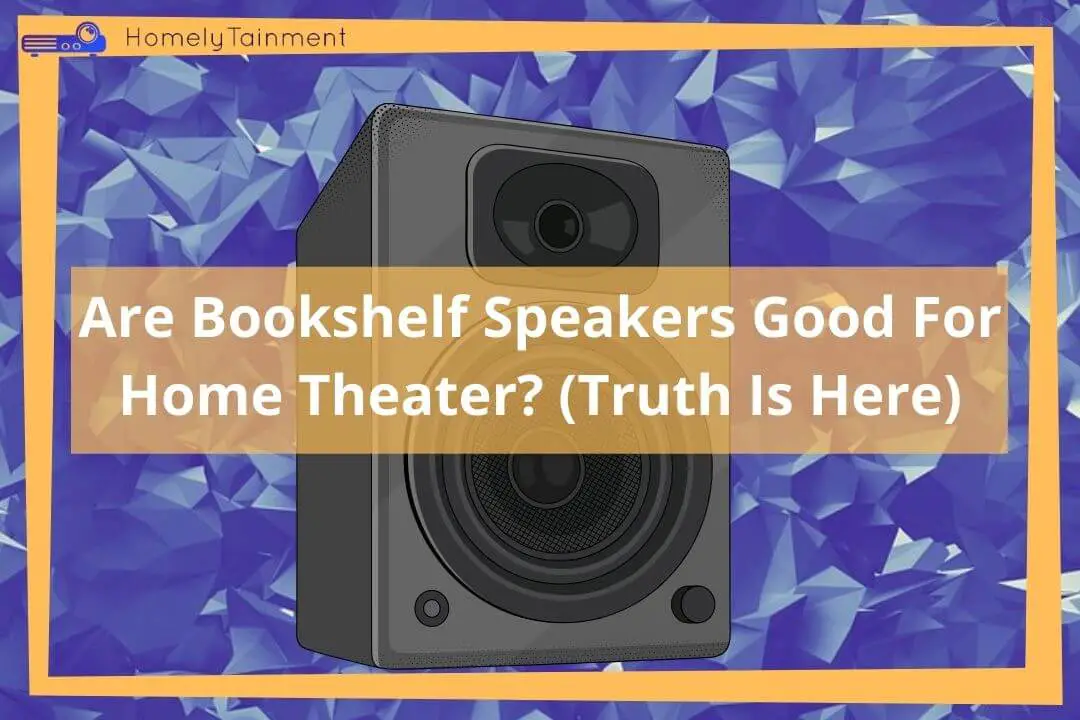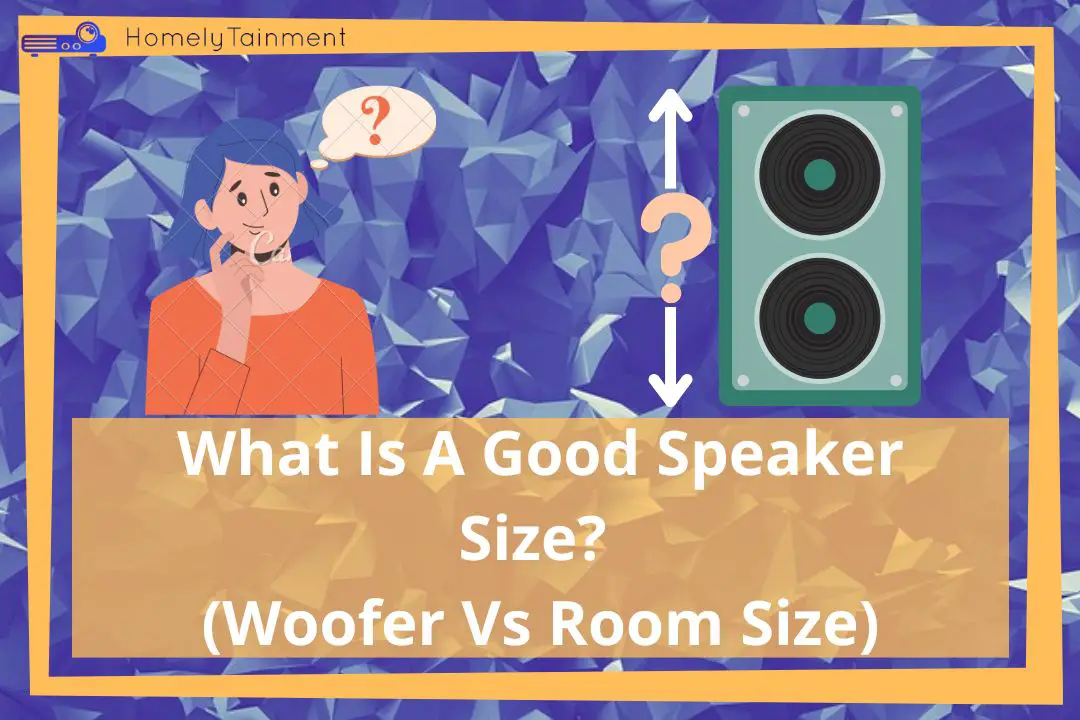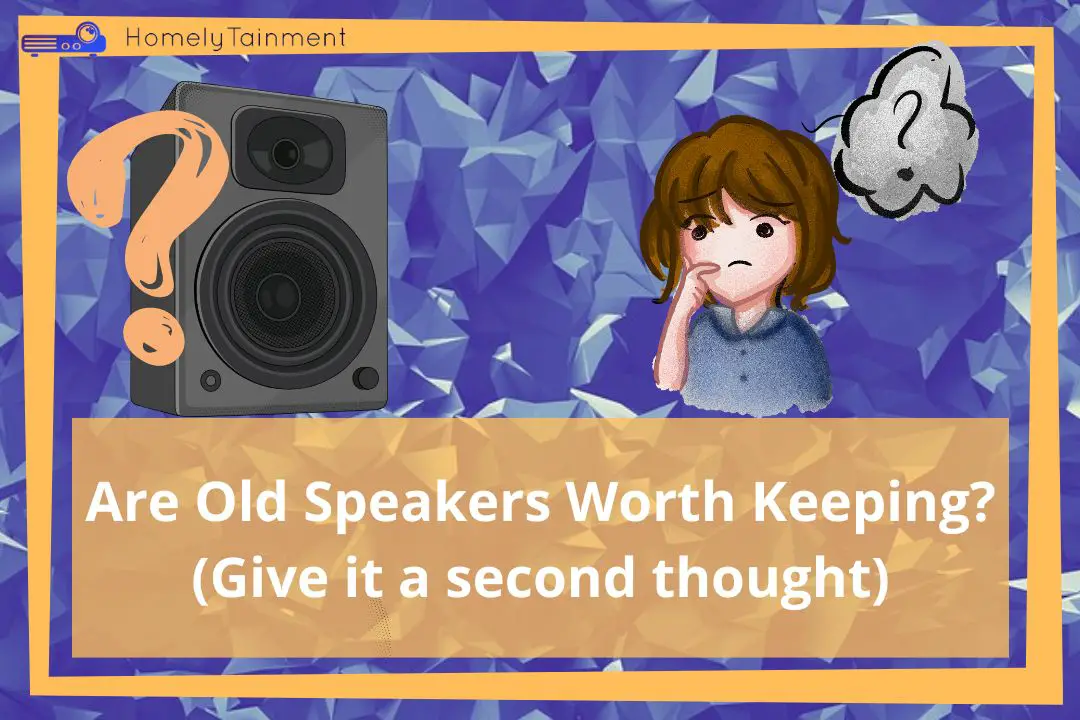
Homelytainment earn commissions (at no additional cost to you) if you purchase products from retailers after clicking on a link from our site.
The bookshelf is one of the most popular speaker types for home theater. A lot of consumers are considering them and most of the influencers are forced on using bookshelf speakers. But are bookshelf speakers good for home theater?
At A Glance: As a de facto rule, a speaker that you want to use for home theater should be able to play high, mid, and shallow lower-end frequencies of the sound and the bookshelf can deliver that also using a separate subwoofer the best approach and bookshelf supports that.
Keep reading to know many more angles to this query. I will also be discussing the most related questions to it. You will better know what to choose for yourself.
Why Bookshelves For Home Theater?
The bookshelves are the right candidates to be used for home theater purposes, and they can transfer from right to the best when it comes to bass management.
The right is because the bookshelves can play the high end, mid-end, and a few notes of the lower end. The complete lower can be played by a separate subwoofer.
This is the reason I consider the bookshelves to be the best choice because you can play with the bass management.
There is no absolute position for a bass-generating drive to place in. You need to move the subwoofer around the room to find the best spot for you.
That’s why the bookshelves are the best that need a separate subwoofer. This subwoofer can be moved around the room to find the best position for it. The spot where the subwoofer will sound right and will aid the realism of the movies and music.
Read my this guide to know if a single or dual subwoofer is worth it for home theater. You will learn more new things about it.
Do you need stands for bookshelf speakers and how high should they be?
In-Short: You need a stand if you have placed them on a surface that vibrates and placed them so high that their tweeters’ height matches the height of your ears.
In-Depth: The stand helps the bookshelf speakers to keep at a height that its tweeter height can match your ear level.
When the tweeter height matches the ear level. The voice feels like the characters are talking directly to you. But when the height misses a match.
The voices will feel like they are talking to your chest or someone else. This feels confusing and ruins the movie experience.
For this, you need a stand, but you can place this speaker on something high like a cabinet or shelve. But if that object is not contributing to the vibration sound created from the speaker’s energy transmitted to them, then it is all right.
But if it can absorb the vibrations, then you should buy sturdy stands for the bookshelves to enjoy the noise-free and vibrating-free sound.
Read my this guide to know more about this noise, vibration, and lower frequency pressure on the theater room surfaces. This is the guide. Do Speakers Sound Better On The Floor?
Can bookshelf speakers sound as good as floor-standing/tower speakers? What to choose?
In-Short: When it comes to movies and music, bookshelves can deliver better sound collectively with a subwoofer, but tower speakers can be the best for only music purposes.
In-Depth: The bookshelves are very flexible when it comes to installation and bass management. The tower speaker is the best option when you are only using it for music.
Because the tower speaker is a full-range speaker. Because it has bass radiators, mid-woofers, woofers, and tweeters. It can deliver music with all its levels of sound.
But if you want speakers for movies, music, TV shows, and sports then bookshelf speakers are the best.
Because you can install a subwoofer, and you can adjust its angles and positions for a better experience. The bass driver when detached from the real speaker is the best thing.
While in the tower speakers, the bass drivers are built-in. That’s why I don’t recommend them for home theater. Instead, I use bookshelves with dual subwoofers for the most realistic sound possible.
Read my this guide on how to optimize home theater audio in 5 steps. These steps are proven and easy to follow.
Are bookshelf speakers the same as surround speakers?
In-Short: This question is not straightforward because a variety of speakers can be used for surround sound. But using the same model bookshelf for the surround is the best idea.
In-Depth: There are many types of speakers that can be used for surround sound. Such as in-wall speakers, ceiling speakers, floor-standing speakers, satellite speakers, etc.
The bookshelf is just one of the types that can be used for surround sound. The right candidate for surround sound is to play high, mid, and shallow lower ends. Any speaker that satisfies this rule can be used for surround sound.
But using the same model bookshelf for each position in the surround sound is the best idea. Read my this guide to know more in detail. Can you use bookshelves for surround sound? Don’t forget to read the results of the poll in this article.
Did you get something out of this bookshelf speaker guide? Hold On We Have Something Exciting To Share.
[the_ad id=”4771″]FAQs
Are bookshelf speakers considered full-range?
Bookshelf speakers are not full range, however, they do provide a shallow part of the lower-end frequencies. But it can provide complete high and mid-level. For the full range, the speaker should be able to deliver all levels. But bookshelves can’t deliver all levels completely.
The bookshelves are not full range, and it is an asset for theater room owners. Because you can install separate subwoofers to fill the room with those lower frequencies. It helps you to better manage the bass.
Can bookshelf speakers get loud?
Normal bookshelf speakers can get loud in a small to midsize room while for large you will need a hi-fi bookshelf speaker, but the result is that they get loud.
Bookshelf speakers are of different power and size. The normal size can get loud and can fill small to midsize rooms, while for large you will need hi-fi bookshelves.
These hi-fi bookshelves have high stands and are very pricey.
What kind of speakers do I need for surround sound?
For the center channel, you need a speaker that can play high, mid, and shallow lower and the same goes for left and right. For the surrounding sides and rear, the speaker should be able to only play mid and high.
You need a different ability of the speaker for each position of the surround sound. This is the basic rule of selecting speakers for surround sound.
Are bookshelf speakers considered Large or small?
The question is wrong. The speaker is selected as large or small in the sound menu of the receiver. You should select the bookshelf speakers as small in the setting so all the bass frequencies are shifted to the subwoofer.
By doing so, you are easing the burden of the speakers and allowing them to better play mid and high while the subwoofer handles the lower end.
Helpful Resources For The FAQs To Read More
- This was my opinion, read more about it from Crutchfield Blog. (Resource for the third answer)
- This was my opinion, read more about it from SVSsound Blog. (Resource for the fourth answer)




